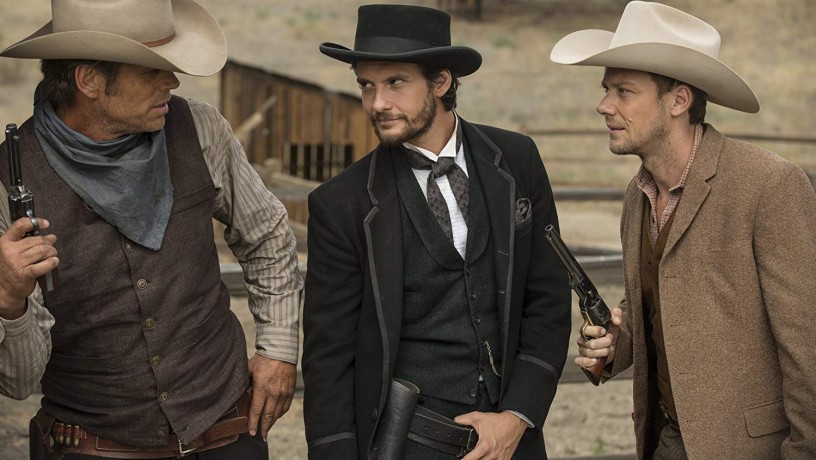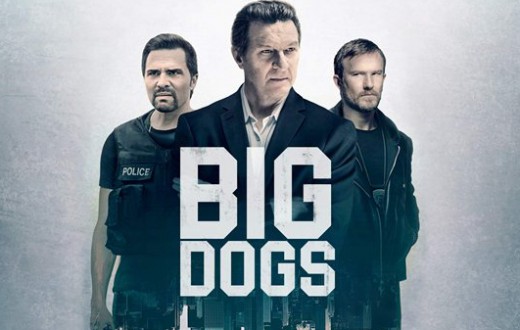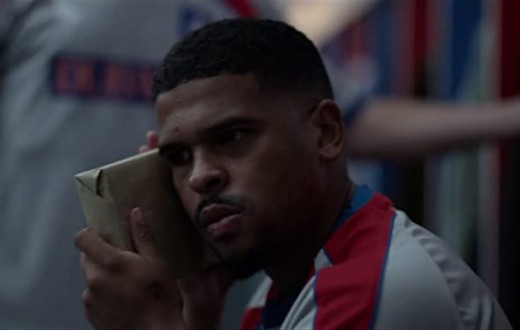From Westworld to Sons of Anarchy to getting his hand chopped off by Denzel Washington in The Book of Eli, Bosch regular Chris Browning has seen it all.
While little kids have the luxury of dreaming about being a huge movie star, actors who have been around for a while understand that becoming a mega-celebrity is a foolish thing to hang all of your hopes on, at least for all but .001 percent of us. Having outgrown childhood fantasies, what most actors with any experience are hoping for is to be steadily employed, to get opportunities to play fun, challenging roles and create a solid body of work that they can look back on with pride.
That’s why to the up-and-coming actor who understands the reality of the business, someone like Chris Browning should be considered a hero, even more than a Tom Cruise or Brad Pitt. That’s because Browning epitomizes the hard-working, “regular guy” actor. He’s the actor who has learned the craft, knows what he’s doing, and makes a great living by learning his lines, hitting his marks and grinding every day. That work ethic and dedication to learning the craft has landed him gigs like improvising with Denzel Washington on the set of Book of Eli to being burned alive in 3:10 From Yuma under the watchful eye of Christian Bale. And it’s given Browning a depth of knowledge about how the business works and what it takes to be a part of it that he’s willing to share.
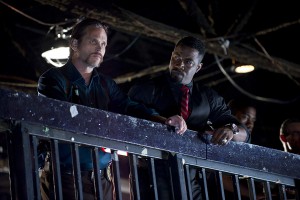 Catching up with Browning for a phone chat from his Los Angeles home, the first thing you learn about him is that he’s a natural storyteller with a great sense of humor. Even his first tentative forays into the world of acting were fraught with missteps and humor.
Catching up with Browning for a phone chat from his Los Angeles home, the first thing you learn about him is that he’s a natural storyteller with a great sense of humor. Even his first tentative forays into the world of acting were fraught with missteps and humor.
“I wanted to write screenplays, and I had this friend who said he knew someone who went to the American Academy of Dramatic Arts,” Browning said. “And I said, ‘Good, that’s where I’ll go.’ Because I wanted to learn ‘the dramatic arts.’ And after I got enrolled and everything I was talking with them about how I’d like to focus primarily on screenwriting, and they were like, ‘What are you talking about? Here’s your schedule, you’ve got voice and speech, and Shakespeare, and comedy, and movement…’ And I had already paid, so I said why not give it a shot?”
But even given Browning’s roundabout way of getting started in the business, he says he immediately fell in love with performing, and worked hard to learn how to do it. One problem he sees with hopeful newbie actors rolling into Hollywood is they haven’t really put in the work to give themselves a solid chance at succeeding there – or they haven’t put in the right kind of experience.
“The biggest mistake is when they say they have experience, they have experience at what?” Browning said. “I think the thing on the West Coast is a lot of people who get off the bus out here and think they’re going to be big stars, they think because they have a little experience in doing some catalog work for the local mall they should be a star. That’s two different sports. That’s someone who’s really good at ping-pong who thinks they should be in the NFL.”
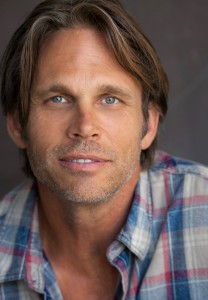 And while there are always going to eye-candy type roles for people who are “really, really, really good-looking” on a the Derek Zoolander level, Browning cautions against relying solely on your appearance to land you work in LA. Even if you are stunningly attractive, Browning says, you’d be better served developing a strong tool kit.
And while there are always going to eye-candy type roles for people who are “really, really, really good-looking” on a the Derek Zoolander level, Browning cautions against relying solely on your appearance to land you work in LA. Even if you are stunningly attractive, Browning says, you’d be better served developing a strong tool kit.
“People don’t realize this is a rare skill,” he said. “There’s so many people that think because they have a certain look, they should be famous. But this isn’t a job about just looking good. Now, granted there are exceptions, but it’s usually on a really low-brow show that people make fun of. They’re not going to be on an Aaron Sorkin show unless they know what they’re doing.”
And to Browning the importance of learning the skills a professional actor needs on set isn’t only about how you perform when the cameras are rolling. Knowing what you’re doing gives you a confidence that is unbeatable, especially when it comes to acting. Because acting requires the psychological near-trauma of auditioning, confidence in your abilities isn’t optional, not if you really want to succeed.
“If you can go to school and learn [the skills], that’s what puts the bounce in your step,” Browning said. “If I can go, ‘Hey I was in Henry VI Part 2 and I played Suffolk and I crushed it,’ then when I go into this toothpaste commercial and have to make a fool of myself, I’m not going to be intimidated by it. And not just confidence, but just knowing how to do it. That’s big.”
Browning also wanted to impart the importance of knowing how to improvise, and having the confidence to create on the fly.
“If you’re an actor, and you’ve done some work with improvisation, and you come up with your own bit, hopefully its funny. And if they have you do it again, do something else. Don’t do the same thing you just did. Come up with a second thing. That’s what they’re looking for. They want to know that this guy can think on his feet, he can roll with the punches,” he said.
And for younger actors who can’t imagine a time when they won’t get nervous anymore before an audition, take heart: even an old pro like Browning still gets the nerves now and again. The difference, he says, is having done the work to prepare for the audition, and having the confidence to know you can deliver.
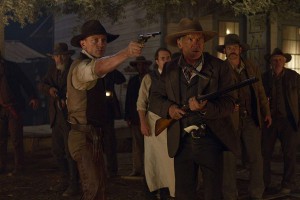 “A lot of that comes from experience,” Browning said. “I mean I still get nervous before auditions. Most of the time I don’t, because I’ve got what I want to do. I don’t go in there knowing I have the JOB, because it might have something to do with, say, my eye color. But when people ask ‘How did it go?’ I always say, ‘I did what I wanted to do.’ And that’s all I can do.”
“A lot of that comes from experience,” Browning said. “I mean I still get nervous before auditions. Most of the time I don’t, because I’ve got what I want to do. I don’t go in there knowing I have the JOB, because it might have something to do with, say, my eye color. But when people ask ‘How did it go?’ I always say, ‘I did what I wanted to do.’ And that’s all I can do.”
Another auditioning tip from Browning has to do with understanding what you’re truly up against when you’re in that audition waiting room and you’re sitting with 50 other guys who look just like you and start to feel hopeless about your odds of landing the part.
“If you can sit close enough to the room they’re auditioning in, and you can hear what’s going on through the walls, you start to realize 90 percent of these guys have no business even being here. I can tell they’re terrible through a wall! Imagine how bad it is in the room, if it’s hurting me that much through a wall! The competition isn’t as great as we think it is,l” he says.
Browning also advises actors to know what they’re auditioning for, and to bring the appropriate amount of emphasis to the lines. For instance if you’re reading for a small role as a paramedic who gives the lead and the audience a bit of exposition about an accident that happened, maybe don’t bust out your Suffolk from Henry VI at that moment.
“Especially the smaller roles that people are auditioning for early on when they don’t have a lot of credits, they want to put all this mustard on their five lines because they want to be really memorable,” Browning said. “But that’s the one thing that’s going to ensure they don’t get the job. We don’t ever want to go, ‘Oh my God! Did you see that paramedic? He just stole the scene! He was so mesmerizing!’ No. That’s not the job. Don’t try to draw so much focus. We want to focus on Tommy Lee Jones as he’s listening to this. You have to understand what the part is.”
However, that understanding can cut both ways. Browning related the story of how his creativity helped to make what might have been a rather cut-and-dried scene with Denzel Washington in the post-apocalyptic action thriller The Book of Eli much more memorable. In his role as the leader of a band of thugs looking to steal from Denzel’s character and likely kill him, Browning got the green-light from director Allen Hughes, “who is more of an actor’s director,” to play with his delivery once it became clear in on-set rehearsals something a bit different was called for than what was written in the script word-for-word.
“So it was definitely a good time to steal it, to go big and have fun and be entertaining, because I was supposed to be the focus of that scene until Denzel’s character takes over and wins it. The bigger I am the better of an opponent I am for Denzel. And at the end of the scene, I’m still alive after he’s killed all my guys, and the script says he slashes me across the neck, because I’m on my knees.”
At the end of the day, Denzel argued that that type of death for Browning’s character would make the audience side against Denzel’s own character, even though they were adversaries.
“Denzel said, ‘He’s put so much personality into this instead of just being ‘evil bad guy’ that the audience is going to kind of like him. So if I kill him like that, they’re not going to like me.’ So he goes down on his knees, kind of hugging me, and I kind of give him this little nod and he slowly just slides the knife into my chest and puts me out of my misery – because I’m bleeding to death anyway, he cut my hand off.”
But Browning is quick to note that beneath it all, there’s nothing like having a solid base from which to work, starting with simple scene study classes.
“That’s where I got the most help as an actor,” Browning said. “Just being in a scene and listening to somebody and listening to different ways of saying the lines and doing that back and forth. That gives you the improvisation that you need, because you can play with the dialogue.”
He also suggested actors just starting out do whatever it takes to get themselves a solid reel.
“The trick I think is to get a reel,” he said. “Search for student films and get some footage you can cut together because these days it’s about having a link. Nobody wants to see a paper with a bunch of made-up credits. You just send out a link to your reel. Mix up the first minute to show pieces of three or four things if you can, and the latter part can be a full scene, but try to show them yourself as two or three or four different characters in that first minute.”
These days Browning is a series regular on Amazon’s critically acclaimed Bosch, and he continues to write, currently at work on two pilot projects. One of those is a semi-autobiographical piece that focuses on his own time when he was homeless and addicted to drugs. But according to Browning – no spoilers – it will hardly be some simple, sappy Hallmark channel tear-jerker.
“It’s called ‘In the Life.’ It’s kind of autobiographical, it’s about this homeless, drug-addict ex-con who got out of prison and started a new life and he’s been really successful, he’s got a wife and kids, he’s a treatment specialist, he’s a frequent guest on Dr. Oz. But there’s a twist at the end. You find out he’s not the guy you think he is at all. It’s really more of a Ray Donovan kind of thing rather than a family drama.”
What’s certain is that Browning will continue to create memorable roles and scripts, regardless of what life sets in his path. And he says its up to every actor to do the same, no matter how tough it can be at times.
“My advice is just to hang in there,” he said. “None of it’s personal. So many people in this business know even less about what they’re doing than you do. Don’t take the rejection personally because it’ll suck your soul out, because the rejection is just constant. It’s just a numbers game – just do your thing and move on to the next one.”
Season 5 of ‘Bosch’ featuring Chris Browning will be available on Amazon starting April 19.

